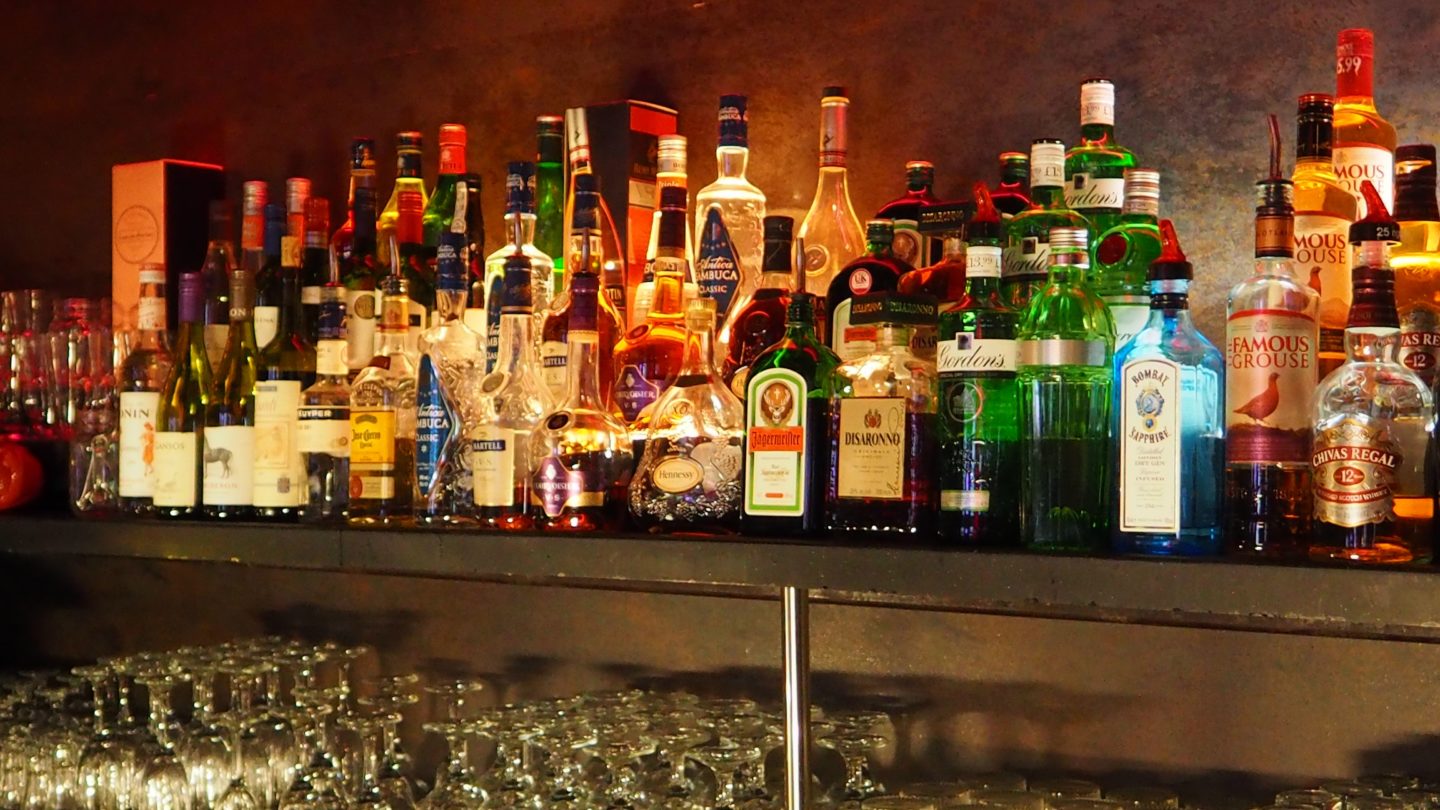Two Scottish local authorities who spent over £42,000 of funds meant for the “common good” on boozy receptions have been accused of delivering a “kick in the teeth for hard working families”.
Aberdeen City Council, which is run by a Labour and Conservative coalition, spent £38,280 of its common good fund on “civic drinks” for events in 2017 and 2018. Highland Council, made up predominantly of independents, spent £4,439 on drinks for “civic hospitality” events between 2015 and 2017.
Common good funds are derived from Scotland’s ancient burgh property, such as land, buildings, and investments, and held on behalf of local residents by councils. Both Aberdeen and Highland councils describe their funds as existing to support “projects that benefit communities”.
The Scottish National Party accused council leaders of having “a warped perception of what counts as common good”. Using the funds to buy alcohol was “a real kick in the teeth for hard working families”, the party said.
The GMB Scotland trade union said that such spending made council leaders “look badly out of touch” and that common good funds “should be directed into the communities and projects that need it the most”.
Aberdeen council said that hosting such events were among its “civic duties” and “part of the fabric of the city”. It stressed that all common good expenditure was “approved through established protocols”.
Councils criticised for using common good funds for foreign flights
Documents released under freedom of information law disclose that Aberdeen’s £38,280 drinks tab included £160 for two bottles of malt whisky, £470 for other whisky and a £378 “supply of civic drinks” for the Lord Provost’s sitting room. At an offshore oil and gas conference in Aberdeen in September 2017, £2,240 of the common good fund was spent on drinks.
Aberdeen council suggested that another event, at which £7,260 of the common good fund was spent on alcohol, was granting the freedom of Aberdeen to former Scotland international footballer, Denis Law, in November 2017.
Highland Council’s £4,439 common good spending on booze included £960 on malt whisky, as well as other money spent on wine, gin, vodka, rum and other drinks.
Both councils also spent their common good funds on their lord provosts, Aberdeen labour councillor, Barney Crockett, and independent Highland councillor, Helen Carmichael. Some £11,775 of Aberdeen’s fund was used to buy various items for Crockett’s “gift fund”.
The gifts included £2,403 worth of pens, three carriage clocks totalling £1,381 and £1,190 on cufflinks and cufflink boxes. In addition £1,170 was spent on city lapel badges, £660 on council pennants, £560 on business card holders and £405 on a drinks tray, decanter and glasses.
Highland Council spent £5,979 on various costs relating to Carmichael. These included £2,815 to “relocate” her “lighting columns”, £675 for an interview with north of Scotland business publication, Executive Magazine, and £469 on other marketing costs.
Another £168 was spent by Highland on chauffeur-driven cars, while other costs were for meals, taxis, computer repairs, along with invitation, greeting and business cards.
Common good funds generate at least £20 million a year and are unique to Scotland. Not all councils, or all towns, benefit from such funds, and some councils are unclear what assets they hold.
Where common good assets have been identified they are supposed to be managed separately from normal council resources and used – according to a law first passed in 1491 and still in force today – “for the common good of the town.”
However, politicians, academics and GMB Scotland have questioned whether the funds are always used for the “common good”. In September The Ferret reported that Highland and Aberdeen councils were criticised for using their common good funds to pay for flights.
Highland council spent £2,000 on flights for provost Carmichael and others to attend events and meetings in France, Germany and Stornoway. Aberdeen council spent £1,350 on flights for provost Crockett to attend events in Mexico, Columbia, London and Portsmouth.
The Scottish Greens said at the time that flights should be “adequately budgeted for elsewhere and definitely not at the expense of communities”. But Highland Council said that such travel costs were “essential in ensuring that the city is represented at the highest city civic level”.
According to Aberdeen council, Lord Provost is an “ancient office with its roots in the 13th century”, who acts as the “convener of the city council, civic head and Her Majesty’s Lord-Lieutenant of Aberdeen”. The Lord-Lieutenant’s “principal duty is to represent the Crown within the lieutenancy area and to uphold its dignity”.
Aberdeen provost Crockett travels abroad frequently and was the highest claimant of council expenses in recent years. In 2018-19, he claimed £26,045, £13,564 of which was for travel, and £11,125 on subsistence, in addition to his £29,742 salary.
In 2018 he was due to make four foreign trips, with a £24,000 taxpayer-funded travel allowance, and in 2019, visited Houston, Texas three times in five months, according to The Press and Journal.
Earlier this week, Glasgow’s Lord Provost, SNP councillor Eva Bolander, faced calls to resign after it emerged that she claimed £8,000 of public money on clothes and beauty products. She later apologised and promised to pay back some of the cash.
Dundee council ‘raided’ common good fund for £5.5k Lord Provost portrait
The SNP-run Dundee City Council also ran into criticism in August when The Ferret revealed that it used £5,500 of its common good fund to pay for a portrait of the city’s provost, Ian Borthwick, a former Labour councillor who now sits as an independent. The portrait of the previous provost cost £3,000 and was funded by the council’s Corporate Services Department budget rather than the common good fund.
The council argued that portraits of all the council’s former provosts were on display in the city chambers, which is open to the public. But GMB Scotland said that the fund had been “raided” by the council to pay for the portrait, which they suggested would be “insulting to the people of Dundee”.
The spending has also prompted criticism from academics and politicians, who have called for new rules to improve management of common good funds and ensure that they are not “frittered away”. This followed an investigation by The Ferret which found many funds to be worth far less now than they were a decade ago.
We calculated that Dundee’s common good fund was worth 24 per cent less than it was ten years ago, after adjusting for inflation. Similarly, Highland Council, which has one of the country’s largest common good funds, has seen its value decline by £2.5 million over ten years.
The Convention of Scottish Local Authorities promised that councils would consult with and involve communities in the administration of common good funds. However, they claimed that councils were “committed to administering common good funds in the best interests of the communities they serve and in a transparent way.”
The SNP said that the use of common good funds by Aberdeen and Highland to buy alcohol showed that “council bosses clearly have a warped perception of what counts as common good”.
A spokesperson for the party said: “In Aberdeen, Labour and the Tories have teamed up to force through £150 million of cuts to public services in the city.
“So it’s a real kick in the teeth for hard working families to hear that city chiefs are spending thousands guzzling expensive booze – from funds intended to be for the wider public good – while others are struggling.”
GMB Scotland’s Aberdeen-based organiser, Mel Greenhalgh, said: “A sense of perspective is badly missing among our public sector elite, from Aberdeen to Glasgow our local leaders look badly out of touch.
“No one should need any reminding that we are in a second decade of austerity. Frontline services have been hammered and communities are feeling the effects.
“Money allocated for the common good should be directed into the communities and projects that need it the most – do what it says on the tin.”
An Aberdeen City Council spokesperson said: “The civic duties of the council, led by the Lord Provost, are part of the fabric of the city and play a valuable role in celebrating achievements of residents, welcoming guests of the city and in wider economic development activity. All expenditure from the common good fund is approved through established protocols.”
Highland Council and lord provosts Barney Crockett and Helen Carmichael did not respond to repeated requests to comment.
What was Common Good cash spent on where you live?
Below, you can find an interactive database that makes it easier to search all the data from the 21 Scottish local authorities that provided The Ferret with itemised spending data from their Common Good funds. The data shows that more than £58 million was spent from these funds over the last three financial years.
This story was published in tandem with the Sunday National. Photo thanks to Chan Walrus on Pexels.















Great article, Jamie, and truly shocking.
If I see Helen Carmichael, I will give her a piece of my mind.
By the way, ‘predominately’ is not a word: you mean ‘predominantly’.